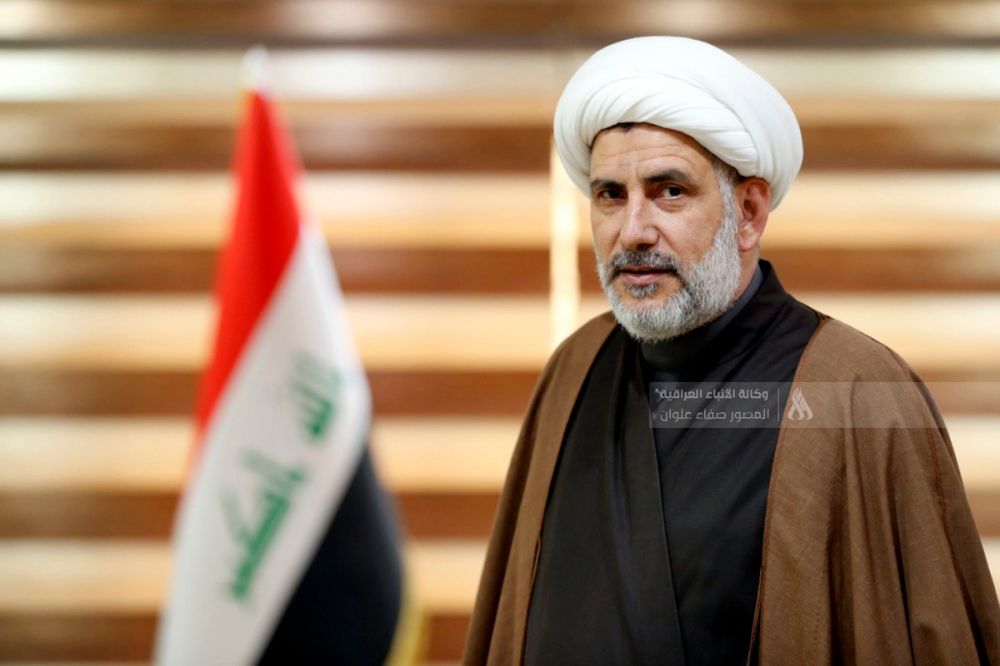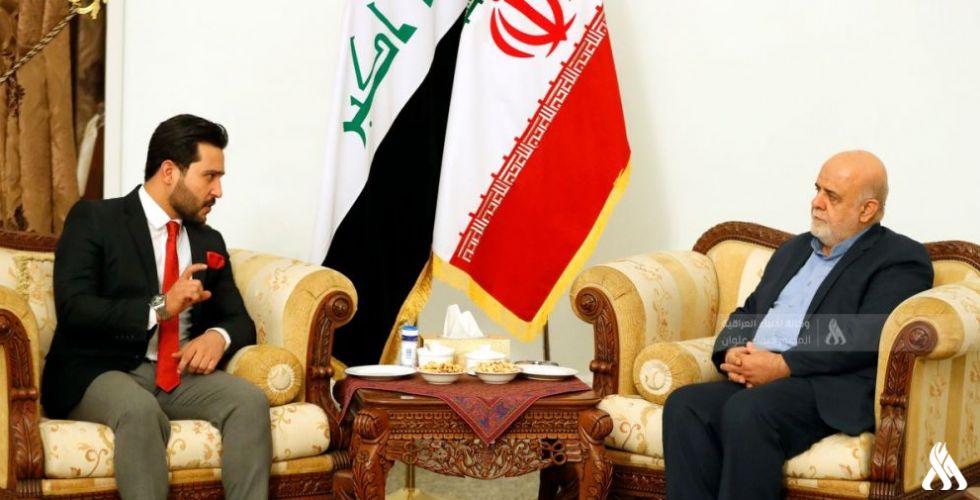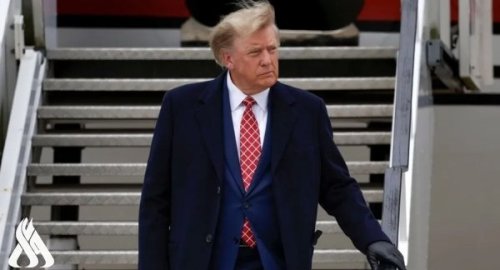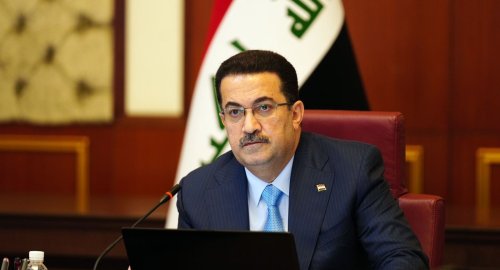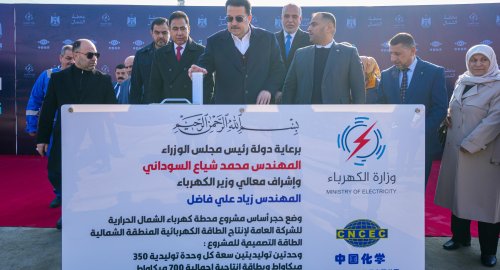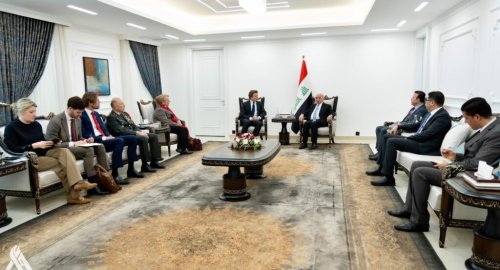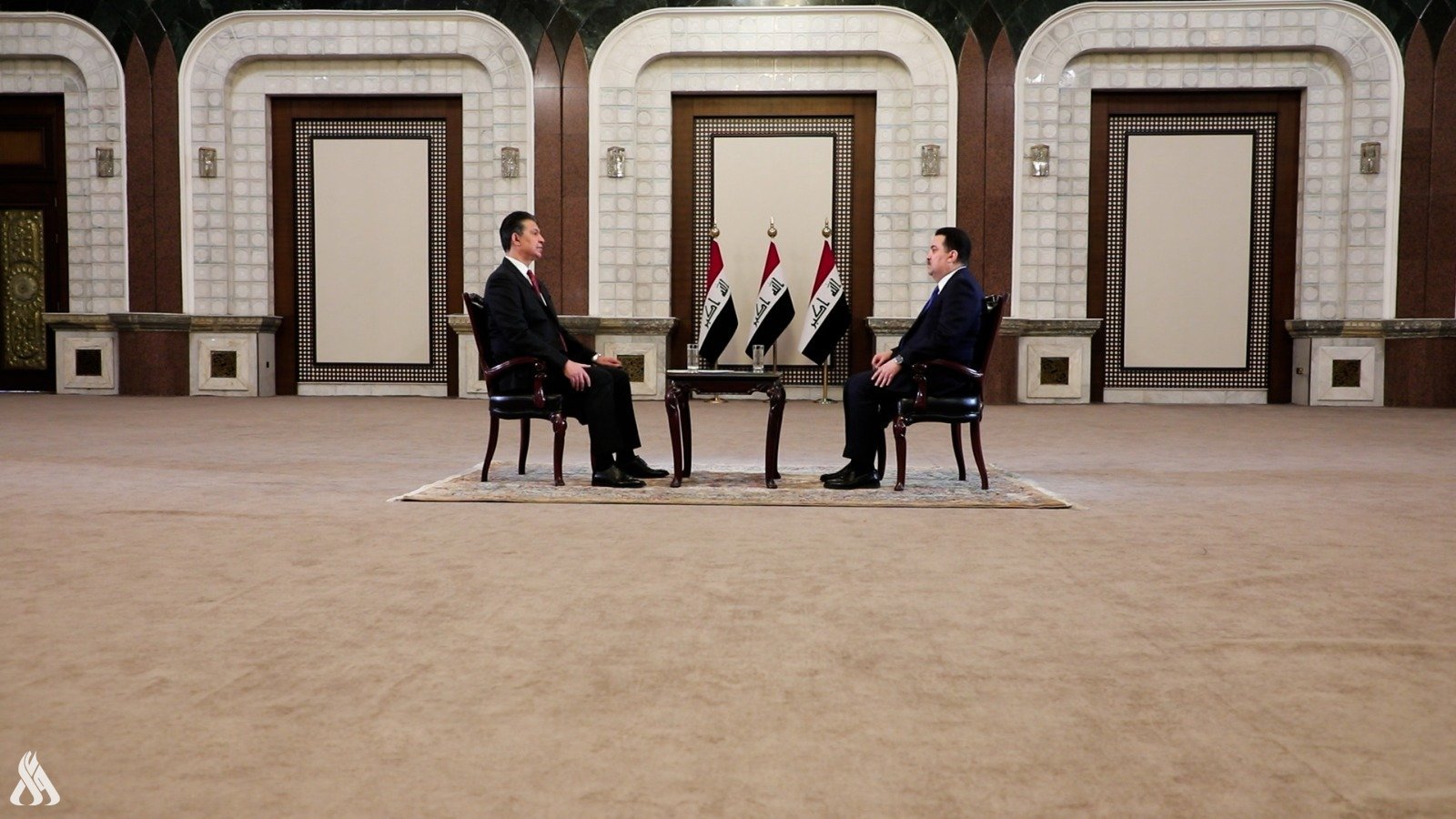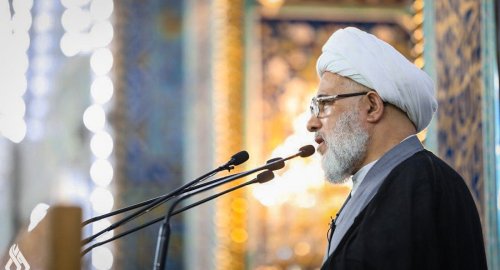
The Supreme Religious Authority reveals its approach in dealing with the crises of Iraq

- 30-08-2021, 14:34
Baghdad-INA
The Representative of The Supreme Religious Authority, Sheikh Abdul Mahdi al-Karbalai, revealed the approach of the Supreme Authority in dealing with the Iraqi issue and fatwa of sufficient defense and the values and principles it embodied, indicating the reasons behind the popular response to this fatwa from the various components of the Iraqi people.
Al-Karbalai said that the blessed fatwa embodied many of the principles that were mentioned in the path of Imam Hussein (peace be upon him), on top of which is self-denial, sacrifice, altruism , defending the homeland and souls, money and honors, affirming that the fatwa addressed all the sons of Iraq, and it did not refer to a specific component or sect, as it mentioned the sons of the Iraqi army, which includes all components, and citizens in general, the country and the dangers it is exposed to.
He also explained that the national approach adopted by the Supreme Religious Authority in the previous period and its defense of the rights and interests of all components of the Iraqi people, as it is supporting all components of the Iraqi people in the challenges, crises and dangers they are going through.
The representative of the Supreme Religious Authority recalled the Stances of His Eminence al-Sayyid al-Sistani in directing his delegates to transfer aid, medicine and food to one of the besieged areas by the terrorist organization ISIS and deliver them to the besieged citizens, despite the great dangers at that time. And the transfer of medical aid and foodstuffs to the displaced Yazidis during the period of their siege by terrorist gangs.
He stressed, that the real practical program adopted by the Supreme Religious Authority is the concerns of the homeland and the citizen in general, so there has been great harmony between the stances of citizens in general and the Religious Authority.
Trump: I will stop the chaos in the Middle East and the war in Ukraine
- International
- 10:07
US Central Command: We killed ISIS terrorist leader Abu Yusuf in Syria
- International
- 24/12/20
Liverpool compete with Real Madrid to sign Olympique Lyonnais star
- Security
- 24/12/19
ISC, ADX discuss Strengthening Economic Ties
- Economy
- 24/12/16
Iraq assumes presidency of Arab Investment Company’s Executive Board
- Economy
- 24/12/17
